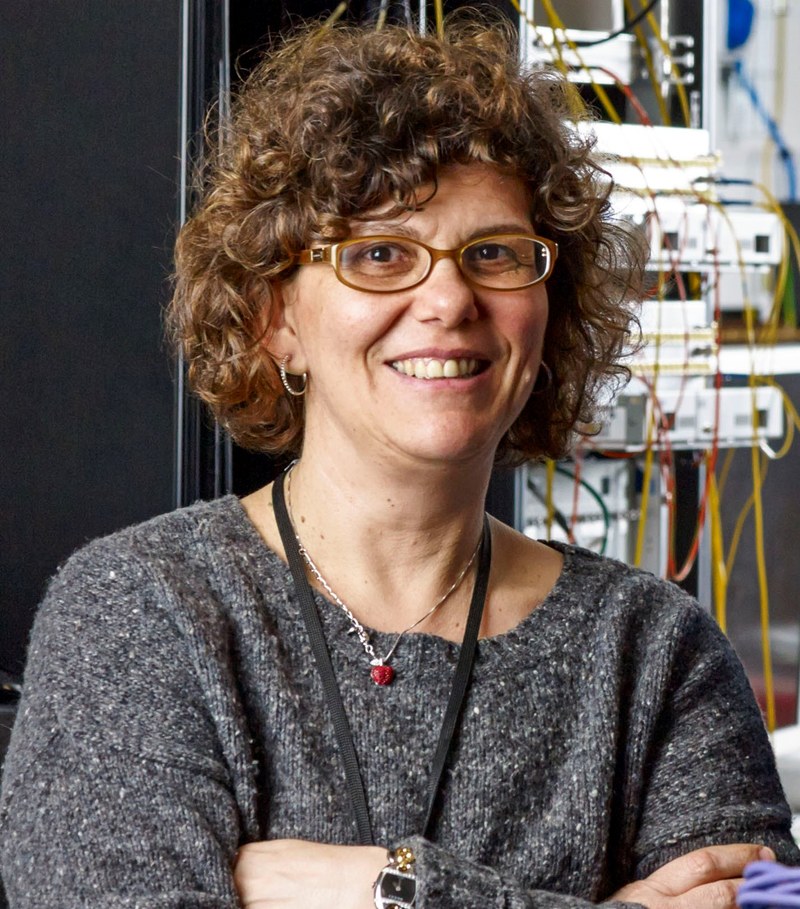
New Dark Fibre Communications Research Service to power the future internet
Software defined optical network funded by EPSRC and Janet, part of the Jisc group, will enable researchers to create vital underpinning communications technologies
A new National Dark Fibre Facility (NDFF) is to be set up to enable researchers to develop the underpinning communications technologies for the future internet. The UK Engineering and Physical Sciences Research Council (EPSRC) has provided £4.9 Million to fund the project. Following a competitive tendering process, the 5 year contract for NDFF has been awarded to UCL as prime contractor for a consortium comprising the Universities of Bristol, Cambridge and Southampton. NDFF will provide access to a dedicated dark fibre network connecting these universities, with onward connection to European and Worldwide research networks via telecommunications facilities in London. The network will be engineered with equipment that can be configured remotely and dynamically, and will be an example of a Software Defined Network (SDN). These fibre connections, comprising some 800 km of single mode fibre, together with control and monitoring systems, will be provided to NDFF by Janet, part of the Jisc group, funded by BIS through its e-Infrastructure programme. Researchers in the UK will be able to access the new network, to be named Aurora2, both directly by placing equipment at consortium sites and remotely using the Janet Lightpath service.
Dark fibre is optical fibre that users can access at the optical data level rather than the electrical data level as in conventional communications networks. Access at the optical level enables users to experiment with novel communication techniques, such as high order optical modulation or quantum communication. The new service builds on previous work carried out by the consortium using a fixed path dark fibre network, Janet Aurora. The new network will offer programmable transmission parameters, dynamic reconfiguration into multiple sub-networks and the ability to handle multiple transmission formats simultaneously.
As well as supporting research on the future core optical network, which underpins the internet, NDFF will also enable research with experimental metro networks, such as the Gigabit Bristol network. NDFF will also support research on wireless backhaul networks for future Wireless Systems such as 5G.
NDFF Director, Professor Alwyn Seeds from UCL Electronic and Electrical Engineering said:
“We are delighted that the EPSRC and Janet have enabled the creation of the new National Dark Fibre Facility. This will enable UK researchers to remain at the forefront of technology research for the future internet."
"UK Photonics and UK electronics are large industries with annual revenues of £10 billion and £29 billion respectively. We will be working with leading UK companies to transfer technologies developed with the aid of NDFF into new products and services. The benefits to the UK economy will be correspondingly large."
NDFF Technical Director, Professor Dimitra Simeonidou from University of Bristol said:
"NDFF will be a platform for experimentation and collaboration across ICT disciplines and User Communities. The platform will use Software Defined Network (SDN) control principles and, as such, will be fully programmable by experimenters and end-users. Internationally, NDFF will be the first experimental infrastructure of this kind and will generate new exciting opportunities to pioneer the development of hardware and software technologies for future communication systems"
Dr David Salmon, Research Support Unit Manager, Strategic Technologies, Janet said:
"Janet is delighted to be able to work with our funding partners and research colleagues to implement this important new facility. It will form the foundation of a very rich multi-layer environment now emerging in the UK within which new network techniques and technologies can be investigated. The funding commitments give us a stable forward-look for the next five years, which in turn will encourage strong collaborations to form and exploit the facility to develop these techniques and the applications that will make use of them"
Published: 5 March 2019
